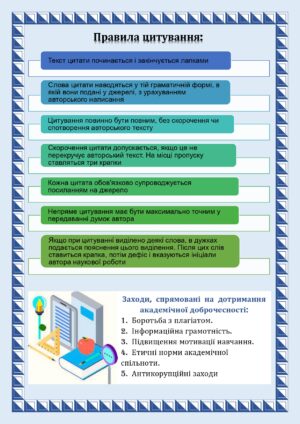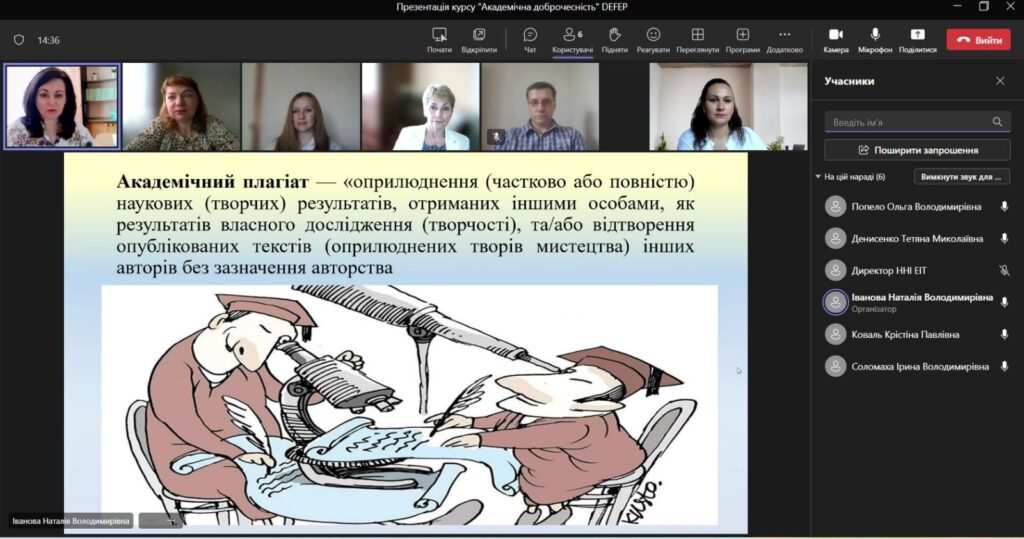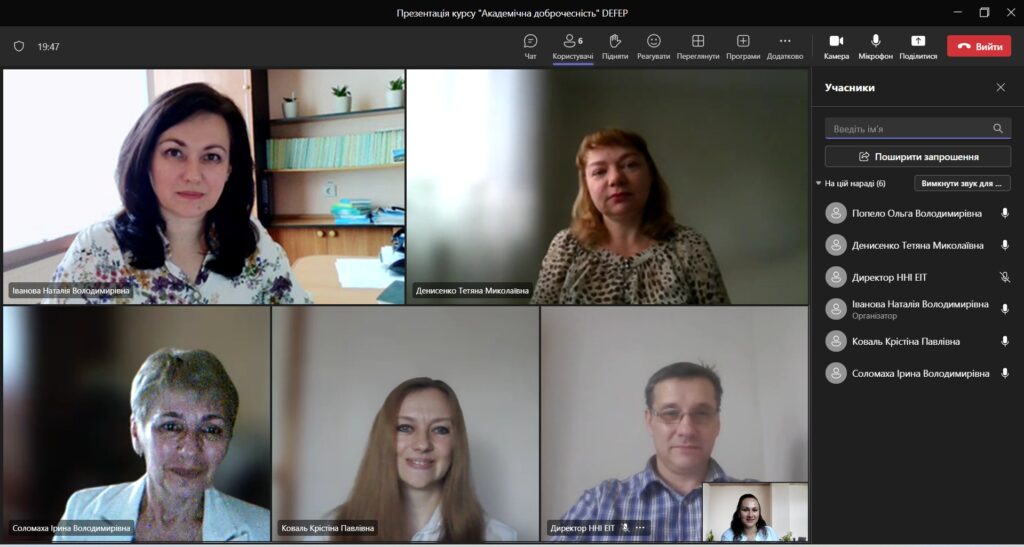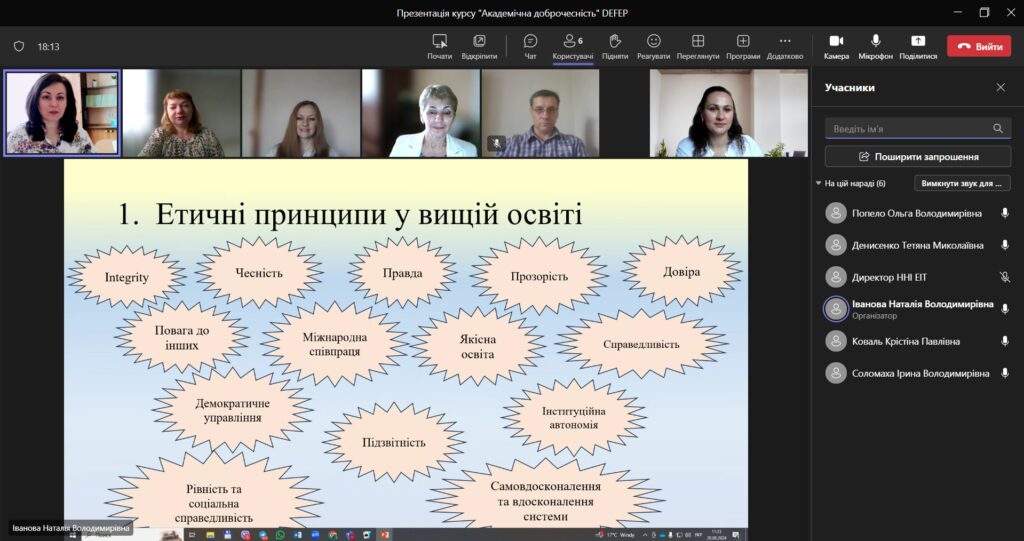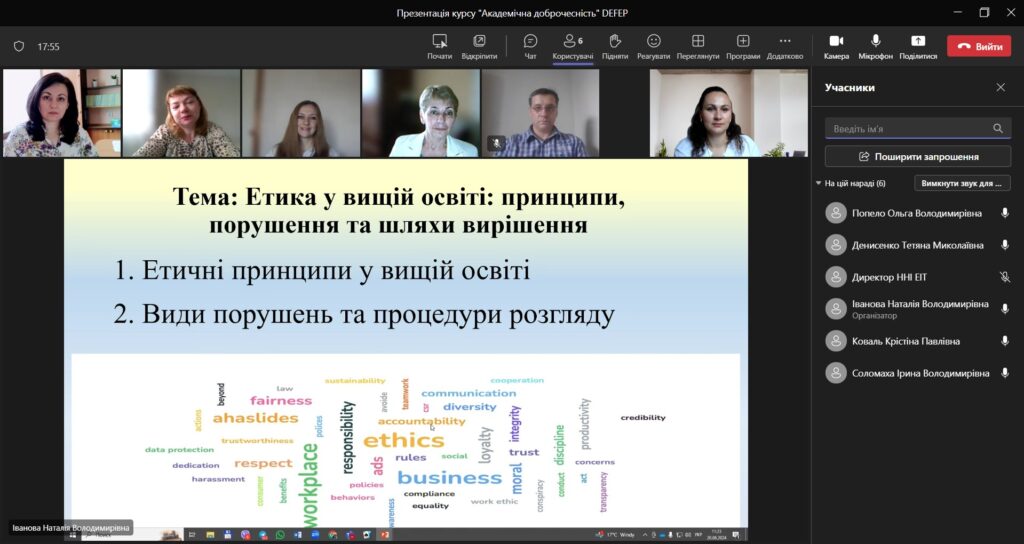Course on academic integrity within the framework of the ERASMUS+ KA2 DEFEP project.
Within the framework of the ERASMUS+ KA2 DEFEP project “Distance Education for Future: best EU practices in response to the requests of modern higher education seekers and labour market”, the teachers of the Department of Entrepreneurship and Trade of the National University “Chernihiv Polytechnic”, Ph, D., Associate Professor Tetiana Denysenko and Doctor of Philosophy Kristina Koval developed a course on the basics of academic integrity and information literacy, which was presented at a workshop on 20 June 2024.
The course “Academic Integrity and Information Literacy Basics” is designed to acquaint higher education students with the basic principles and ethical norms of academic activity, to teach them to avoid dishonest practices and to adhere to high standards in their work. The course aims to develop academic culture, academic literacy and practical skills in oral and written language, intolerance to academic fraud, which is a prerequisite for successful study and future profession.
The basic principles of academic integrity policy in a higher education institution are universal for all forms of higher education. At the same time, this course takes into account the peculiarities associated with digital technologies and the organisation of the educational process in a distance format.
The course and information materials on academic integrity developed by the faculty of the Department of Entrepreneurship and Trade (created by Nataliia Kholiavko, Doctor of Economics, Professor, Professor of the Department of Finance, Banking and Insurance) were approved by all partners of the DEFEP consortium and accepted for implementation at their universities.
Adherence to the principles of academic integrity is a fundamental factor in ensuring the quality of higher education and the formation of a conscious citizen!
The DEFEP project is co-funded by the European Union, but the views and opinions expressed are those of the authors of this project and do not necessarily reflect the views of the European Union or the European Executive Agency for Education and Culture. Neither the European Union nor the grantor can be held responsible for them.
